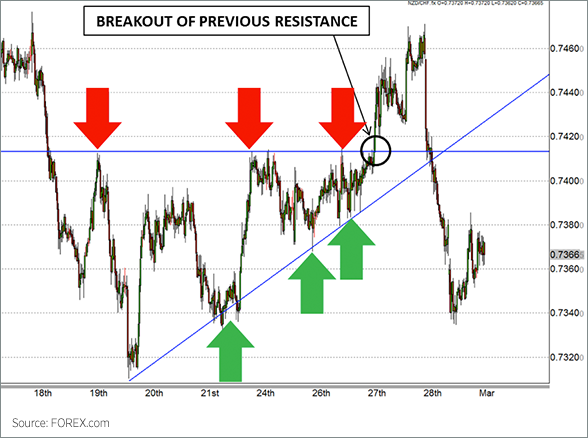An In-Depth Unveiling of Options Trading Volatility
Options trading may seem like an opaque and intimidating landscape, but one concept that heavily influences traders’ decision-making is implied volatility. Implied volatility, like a cryptic oracle, whispers the market’s expectations of future volatility, providing valuable insights that can guide savvy traders.

Image: www.dailyfx.com
Implied Volatility: Unveiling the Future Landscape
Implied volatility is not a tangible entity but rather a projection; it’s the market’s collective forecast of an underlying asset’s price swings over a specific time frame. This enigmatic figure is embedded within the price of an option contract, reflecting the consensus opinion on the asset’s upcoming volatility.
History and Significance of Implied Volatility
The genesis of implied volatility can be traced back to the famed Black-Scholes model, the cornerstone of modern options pricing theory. This revolutionary equation introduced the concept of implied volatility as a variable that must be solved to determine the fair value of an option.
implied volatility plays a pivotal role in options trading, swaying the very foundation of option pricing. It is the prism through which traders peer into the future, gauging the market’s sentiment and the potential for substantial price fluctuations. Traders who master the art of discerning implied volatility’s intricate dance gain a formidable edge in navigating the ever-changing options market.
Interpreting Implied Volatility
Like a seasoned navigator, implied volatility provides traders with invaluable guidance. A high implied volatility reading suggests the market anticipates significant price oscillations in the underlying asset, signaling a potentially volatile future. Conversely, a low implied volatility reading indicates the market’s belief in a relatively stable price trajectory.
Traders must approach implied volatility with both reverence and caution. While it offers glimpses of the market’s collective wisdom, it remains an ever-shifting entity, subject to the whims of market sentiment and unforeseen events. Hence, it is prudent to consider implied volatility as one piece of the puzzle, not the definitive oracle of future price behavior.

Image: www.instafxng.com
Capitalizing on Implied Volatility
Skilled traders leverage implied volatility to craft tailored strategies that exploit market inefficiencies. When implied volatility is elevated, savvy traders may opt to sell options, banking on the premium decay as volatility subsides. Conversely, when implied volatility is muted, buying options can be a judicious move, wagering on a potential surge in price fluctuations.
Expert Insights for Options Trading
Like master swordsmen honing their craft, experienced options traders have accumulated a wealth of knowledge through countless battles in the financial markets. Here are some expert tips to elevate your options trading acumen:
- Study historical volatility: Analyze historical volatility patterns to gain insights into an underlying asset’s typical price swings.
- Monitor current events: Geopolitical turmoil, economic data, and corporate announcements can send shockwaves through the markets, dramatically impacting implied volatility.
- Understand the Greeks: The Greeks, a cohort of metrics that measure options sensitivity to various factors, can provide valuable insights into the potential impact of implied volatility on an option’s price.
FAQs on Implied Volatility
- What causes implied volatility to change?
Implied volatility is a dynamic entity, constantly adapting to shifts in market sentiment, news events, and economic data. - How can I measure implied volatility?
One common method to measure implied volatility is to use the CBOE Volatility Index (VIX), a widely recognized barometer of market volatility. - Is high implied volatility always a sign of a market crash?
Elevated implied volatility can indicate heightened market anxiety, but a market crash is not an inevitable consequence.
What Is Implied Volatility Options Trading

Image: www.pinterest.com
Conclusion
Implied volatility, like a celestial guide in the vast expanse of options trading, illuminates the path to informed decision-making. Understanding and leveraging implied volatility empower traders with the uncanny ability to anticipate market movements, increasing their odds of success in the dynamic world of options.
Are you ready to unveil the secrets of implied volatility and embark on a transformative journey in options trading? Embrace the knowledge contained within, hone your strategies, and seize the opportunities that lie ahead. Welcome to the realm of implied volatility, where fortune favors the wise.






